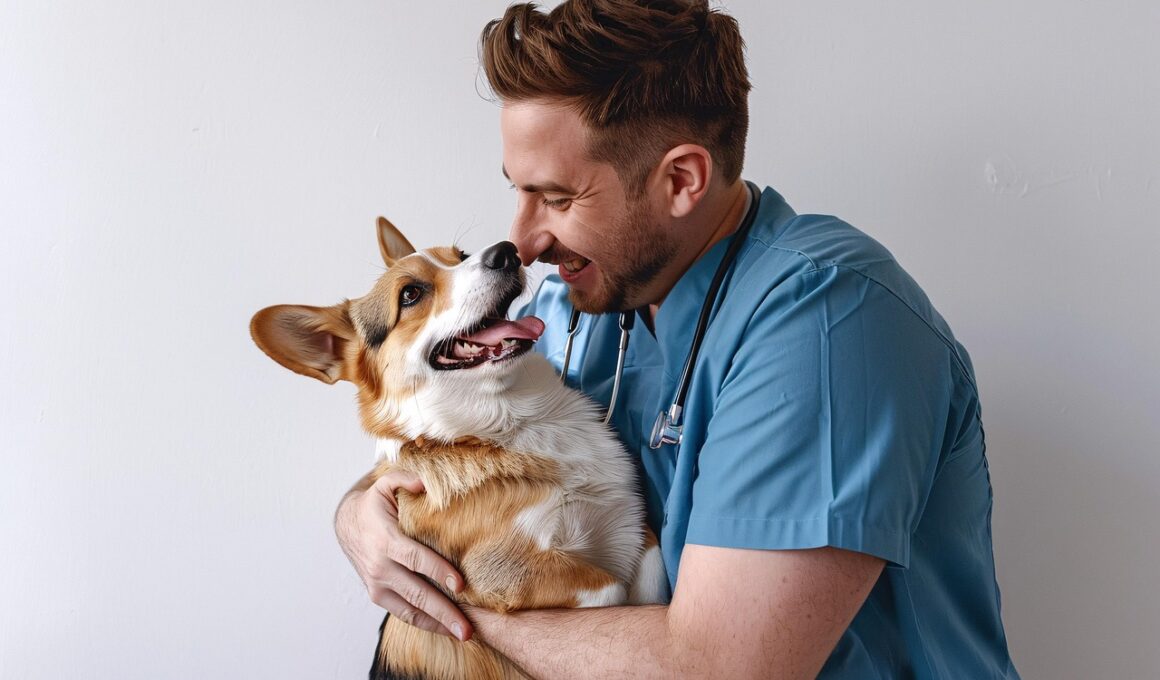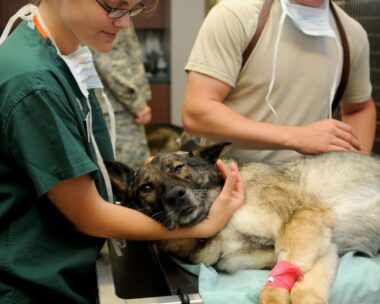Tips for Finding a Dog-Friendly Veterinarian
When you become a dog parent, one essential aspect is selecting an appropriate veterinarian. A good veterinarian can provide healthcare, advice, and support throughout your dog’s life. To find a dog-friendly veterinarian, start by researching local clinics and gathering recommendations from fellow dog owners. Friends, family, and dog trainers can offer valuable insights about their experiences. Visit veterinary websites and read reviews from clients. Observing how the staff interacts with animals is also crucial. Consider scheduling a visit to the clinic without your dog to assess the facility. Look for a clean, well-organized environment that promotes a welcoming atmosphere for pets. Check for available resources that highlight their focus on pet wellness. These can include vaccination programs, dental care, and nutritional advice. Make a list of vet offices that seem promising, and prepare to make inquiries about their services and philosophies regarding animal care. You can also assess their pricing structures to ensure they meet your budget. Establishing a relationship with a vet can greatly enhance your dog’s life quality and ensure they lead healthy, happy lives. It is essential to choose wisely.
After gathering recommendations and doing preliminary research, the next step is visiting potential veterinary clinics. A personal visit will offer insight into the environment and help determine if it meets your dog’s needs. Observe how staff members interact with pets and owners during your visit. This interaction is a critical indicator of the clinic’s culture. Pay attention to how staff react to animals of various temperaments. Do they seem gentle and caring? Additionally, observing the waiting area can provide insights into the overall atmosphere. A friendly, low-stress environment can make visits less intimidating for your dog. Assess whether there are separate waiting areas for dogs and cats, which can help reduce anxiety. Look for visual cues such as decorations or toys that suggest a kid-friendly attitude. Ask about the clinic’s emergency procedures and whether they have after-hours services. It’s also important to ensure that the clinic is equipped to handle various medical conditions. Inquire about the services they offer, like surgery, diagnostics, or preventative care. If possible, speak with the veterinarian to gauge their approach and how comfortable you feel with their philosophies.
Evaluating the Veterinarian’s Experience
When selecting a veterinarian, it’s crucial to evaluate their experience and qualifications. A veterinarian’s background can greatly influence the care your pet receives. Inquire about their education and training; many reputable veterinarians will be happy to share their credentials. Make sure they have completed a Doctor of Veterinary Medicine (DVM) degree from an accredited institution. Additional certifications in specializations, like internal medicine or surgery, are also beneficial and indicate advanced expertise. Ask how long they have been in practice and about the specific areas of canine health they focus on. Experienced veterinarians often come with a wealth of knowledge, establishing themselves as trusted experts in the field. Read reviews from other dog owners regarding their experiences and satisfaction. Pay attention to particular feedback concerning difficult cases, surgical outcomes, or behavioral consultations. This insight can reveal areas of strength or potential weaknesses. Personal rapport is also an important factor; ensure that the veterinarian is approachable and willing to discuss your dog’s needs and any concerns you may have without pressuring you. A trusting relationship will foster better communication and effective care.
In addition to experience, consider the overall philosophy of the veterinary clinic you are considering. Many clinics prioritize preventive care and emphasize routine check-ups, vaccinations, and health education for dog parents. Their approach to animal health should match your own values and belief system. If you prefer a holistic approach to veterinary care, look for a clinic that emphasizes natural remedies and healthy diets. Speak with the veterinarian about their stance on vaccinations and how they tailor them to individual dogs. Understanding their approach to integrated healthcare will ensure that you are on the same page. Additionally, reviewing the clinic’s online presence can provide valuable information about their values. A well-maintained website often showcases the clinic’s services, client testimonials, and informative articles on pet care. Actively engaging with pet owners on social media platforms will also reveal their commitment to educating communities. Ask about community outreach programs, as a practice that advocates for animal welfare can be a good sign. A thorough understanding of the clinic’s philosophy helps to solidify your decision in finding the perfect dog-friendly veterinarian.
Convenience and Location
Choosing a convenient location for your veterinarian is critical for maintaining your dog’s health. Traffic and distance can deter regular visits, particularly during emergencies. It’s advisable to find a veterinary clinic that’s relatively close to home. This eases the burden of scheduling routine visits, such as vaccinations and check-ups. A nearby clinic allows for quick access during unexpected health issues. Once you identify a few potential clinics, map them out to evaluate their proximity, observing how long it takes to get there during typical traffic conditions. After picking suitable clinics, consider their operating hours. Confirm their flexibility and if they accommodate urgent appointments. Some clinics offer extended hours, while others may be closed on weekends or holidays. Knowing their schedule can significantly impact your ability to attend necessary appointments. Additionally, inquire about how they handle emergency cases. A veterinarian linked to a nearby emergency facility can be beneficial. Engaging in regular visits will ensure continuity in care, fostering a strong relationship with the veterinarian. Ultimately, convenience should be balanced with the quality of care to ensure your furry friend’s health remains a top priority.
Discussing costs is an essential aspect when selecting a veterinarian. Veterinary care costs can vary significantly based on services provided, location, and the clinic’s reputation. Before making a final decision, it’s essential to understand their pricing protocol. Contact each clinic you are considering and ask about their standard fees for routine exams, vaccinations, and additional services like surgeries and dental cleanings. Obtaining quotes can help you gauge affordability and understand which services might be necessary. Some clinics may offer package deals for vaccinations or wellness plans that could save you money. It’s also prudent to inquire about payment plans if you anticipate needing extensive treatments. This financial flexibility can ease the strain of unexpected costs. Ask if they accept pet insurance and which providers they work with. This consideration may maximize coverage and minimize out-of-pocket expenses. Transparency in pricing will lead to better communication and build trust between you and the veterinary staff. Health care is an investment in your dog’s well-being; therefore, ensuring you’re informed and comfortable with the costs is essential to stress-free visits.
Conclusion: Building a Partnership with Your Veterinarian
Finally, establishing a good relationship with your chosen veterinarian is vital for your dog’s health and well-being. You should feel comfortable discussing any issues or concerns regarding your dog. Open communication is critical in making informed decisions about treatments and interventions necessary for your dog’s health. Seek a veterinarian who actively listens to your concerns and incorporates your perspective into their recommendations. It’s beneficial if they follow up on your dog’s progress after treatments or procedures to ensure recovery. Regular discussions about nutrition, behavior, and exercise promote an ongoing dialogue about your dog’s needs while fostering a sense of partnership. Attending semiannual wellness visits for check-ups strengthens this relationship, enabling the vet to monitor your dog’s health. Being proactive in your dog’s health care will ensure any issues are detected early. Engage in discussions about preventive care and explore available options. Encourage the vet to provide informational materials related to your dog’s condition or treatment. A solid partnership with your veterinarian will pave the way for a long, healthy life for your beloved companion.





